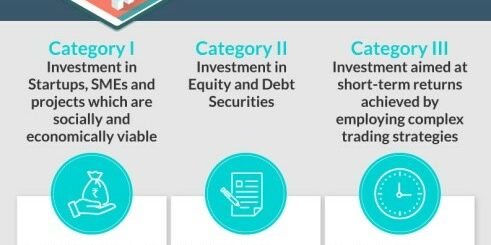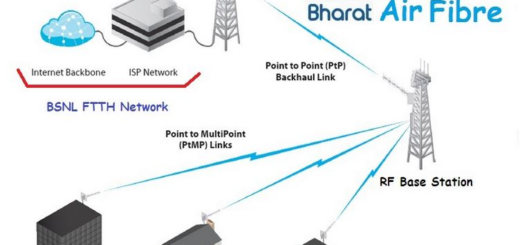National Current Affairs – UPSC/IAS Exams- 17th September 2019
Digital certificate of origin system
Topic: Economy
In News: Commerce Minister Piyush Goyal launched the common digital platform for the issuance of certificates of origin.
More on the Topic:
- A Certificate of Origin is an instrument which establishes evidence on the origin of goods imported into any country.
- These certificates are essential for exporters to prove where their goods come from and therefore stake their claim to whatever benefits goods of Indian origin may be eligible for in the country of exports.
- The platform has been designed and developed by the Director-General of Foreign Trade (DGFT) and Regional & Multilateral Trade Relations (RMTR) Division, Department of Commerce, Ministry of Commerce and Industry.
- This platform will act as a single access point for all exporters, all Free Trade Agreements (FTAs)/Preferential Trade Agreements (PTAs), and all concerned agencies.
- The platform also provides administrative access to the Department of Commerce for reporting and monitoring purposes.
- Authorities of partner countries will now be able to verify the authenticity of certificates from the website.
Significance:
- The issuance process became electronic, paperless and transparent.
- Real-time tracking of FTA utilization at the product level & country-level.
- Electronic Certificate of Origin will omit manual errors and red tapism.
- It is possible now to electronically exchange CoO with the partner countries.
- The system reduces transaction costs and time for the exporters.
Source: PIB
The Jammu & Kashmir Public Safety Act
Topic: Polity and Governance
In News: Former Jammu & Kashmir Chief Minister Dr. Farooq Abdullah was detained under the State’s Public Safety Act.
More on the Topic:
- This is a preventive detention law that allows the State government to detain a person up to two years without a trial.
- It is similar to the National Security Act, but this was enacted two years before the NSA came into being.
- Detention order is passed either by Divisional Commissioner or the District Magistrate.
- The only way the administrative preventive detention order can be challenged is through a habeas corpus petition filed by relatives of the detained person.
- The High Court and the Supreme Court have jurisdiction to hear such petitions and pass a final order seeking quashing of the PSA.
- However, if the order is quashed, there is no bar on the government passing another detention order under the PSA and detaining the person again.
- There can be no prosecution or any legal proceeding against the official who has passed the order.
Constitutional Provisions:
- Article 22(1) of the Constitution states that no person who is arrested shall be denied the right to consult, and to be defended by, a legal practitioner of his choice.
- However, under Preventive Detention Laws like the PSA, the detained person does not have the right to move a bail application before a criminal court, and cannot engage any lawyer to represent him or her before the detaining authority.
- When a person is arrested he/she has to be produced before a magistrate within the next 24 hours. However, in the case of ‘preventive detention’, a person can be detained for three months.
- Article 22(2) states that every person arrested and detained shall be produced before the nearest magistrate within a period of 24 hours (excluding the time necessary for the journey from the place of arrest to the court) and no such person shall be detained beyond this period without the authority of a magistrate.
- Article 22(3)(b) allows for preventive detention and restriction on personal liberty for reasons of state security and public order.
- Article 22(4) states that no law providing for preventive detention shall authorise the detention of a person for a longer period than three months unless:
- An Advisory Board reports sufficient cause for extended detention.
- Such a person is detained in accordance with the provisions of any law made by the Parliament.
- The 44th Amendment Act of 1978 has reduced the period of detention without obtaining the opinion of an advisory board from three to two months. However, this provision has not yet been brought into force, hence, the original period of three months still continues.
Concerns:
- No democratic country in the world has made preventive detention as an integral part of the Constitution as has been done in India.
- The governments sometimes use such laws in an extra-judicial power. Also, there remains a fear of arbitrary detentions.
- However, the Supreme Court has held that in order to prevent misuse of this potentially dangerous power, the law of preventive detention has to be strictly construed and meticulous compliance with the procedural safeguards, is mandatory and vital.
Source: The Hindu and Indian Express
SITMEX-2019
Topic: International Relations
In News: The trilateral exercise, involving the Indian Navy (IN), the Republic of Singapore Navy (RSN), and the Royal Thailand Navy (RTN), recently commenced at Port Blair, Andaman and Nicobar.
More on the Topic:
- It is aimed at strengthening the maritime inter-relationship (in terms of interoperability) amongst Singapore, Thailand, and India, and significantly contributes to enhancing the overall maritime security in the region.
Source: The Hindu
The Steel Import Monitoring System (SIMS)
Topic: Government Policies
In News: The government on Monday launched an online system to monitor steel imports, despite criticism from the industry.
More on the Topic:
- The Steel Import Monitoring System (SIMS) will provide advance information about steel imports to both the government and stake holders.
- Stakeholders include the steel industry (producers) and consumers (importers). Based on these, they can carry out effective policy interventions.
- Under this system, the importers of specified steel products will have to register in advance on the web portal of SIMS, providing necessary information.
- The move has been slammed by user industries as restrictions on steel product imports at a time when exports are battling a global slowdown.
Source: The Hindu
Nallamala Forest – Uranium Mining
Topic: Environment and Ecology
In News: The Telangana State Legislative Assembly unanimously passed a resolution, requesting the Central government not to permit uranium mining operations in Nallamala forests and other areas of Telangana.
More on the Topic:
- The rich biodiversity of Nallamala forest will face severe threat if uranium mining is allowed in the area. The hills and valleys of Nallamala are also catchment area of Krishna river.
- The forests are also home to Chenchu tribals as well as has rich flora and fauna such as tigers, leopards, bears, spotted deer and many other animals. They are also a rich medicinal plants.
- Nallamala Forest Reserve is located in Nallamala Ranges of the Eastern Ghats.
- A part of the forest reserve belongs to the Nagarjunsagar-Srisailam Tiger Reserve which is the largest Tiger Reserve in India.
- Amrabad Tiger Reserve also lies in the Nallamala hills.
About Uranium Mining In India:
- Uranium is used as a fuel for nuclear power reactors for electricity generation, in the manufacture of radioisotopes for medical applications and in nuclear science research.
- It occurs along the Singbhum Copper belt (Jharkhand); Udaipur, Alwar and Jhunjhunu districts of Rajasthan, Durg district of Chhattisgarh, Bhandara district of Maharashtra and Kullu district of Himachal Pradesh.
- Some quality of reserves were recently discovered in parts of Andhra Pradesh and Telangana between Seshachalam forest and Sresailam (Southern edge of Andhra to Southern edge of Telangana).
Why Uranium Mining is opposed here:
- Radiations from these mines will cause harm to the lives of people who live around them, which has been observed in Jharkhand’s Jaduguda.
- The exploration will expose and pollute surface water, groundwater and leech minerals, and dangerous chemicals into the Nagarjunasagar Dam.
- Construction of roads will fragment and degrade the dry forests, which may never recover after such a massive exercise.
- Process of mining includes Drilling of 4,000 deep holes will end up destroying the Amrabad Tiger Reserve which is home to a vast variety of wildlife.
- Rare, endangered and unique species of flora and fauna and overall biodiversity will be destroyed.
Source: PIB
Strikes on Saudi oil facilities
Topic: International Affairs
In News: The Houthi rebels from Yemen carried out drone attacks on two major oil facilities in Saudi Arabia.
More on the Topic:
- It includes the world’s biggest petroleum processing facility. This has impacted Saudi Arabia’s oil production and exports, and in turn the global oil market.
- The attack has cut output by 5.7 million barrels per day, this is close to half of the kingdom’s output and 5% of global oil supply.
- The output cut was expected to send oil prices up $3-$5 per barrel.
- Saudi Arabia is the second largest supplier of crude and cooking gas to India.
- A sudden increase in global prices will affect India’s oil import bill and its trade deficit.
Source: The Hindu
New stimulus measures to Boost the Economy
Topic: Economy
In News: Finance Minister recently presented the stimulus measures to revive the economy.
Back ground:
- This was 3rd set of measures in the series of measures presented by the government in the recent past to revive the economy.
- The previous two sets of stimulus plan, presented by the Minister, focused primarily on reviving the automobile sector, boosting the confidence of foreign investors and improving the health of fragile state-owned banks.
About the recent set of measures:
- The focus has been on helping out the underperforming export and real estate sectors through piecemeal fiscal reforms.
- Finance Minister announced a new tax refund scheme and greater priority sector lending for the export sector to incentivise exports.
- External Commercial Borrowing (ECB) norms have been eased to make it easier for Indian real estate companies to tap funds from abroad.
- Funds worth ₹10,000 crore have been allocated to aid the completion of affordable housing projects.
Concerns:
- With lack of demand and major supply-side bottlenecks being the primary issues facing exports and real estate, it is doubtful whether the present measures will be enough to revive these flailing sectors.
- The government has been relying entirely on providing fiscal relief, in the form of tax cuts coupled with a tiny amount of government spending.
- The hope is that these measures combined with a looser monetary policy stance adopted by the RBI will boost spending and revive growth.
Way Forward:
- Without enacting any major supply-side reforms like land and labour reforms that can raise potential growth, it is also hard to see how greater spending can raise growth for very long.
- The government’s attitude till now is that the slow down merely a cyclical one. Government should accept the slowdown and work towards needed structural reforms to tackle the present slow down and making India’s growth trajectory back to normal.
Model Mains Question: Analyse the causes of economic slowdown and suggest measures to boost the economy.
Source: The Hindu














